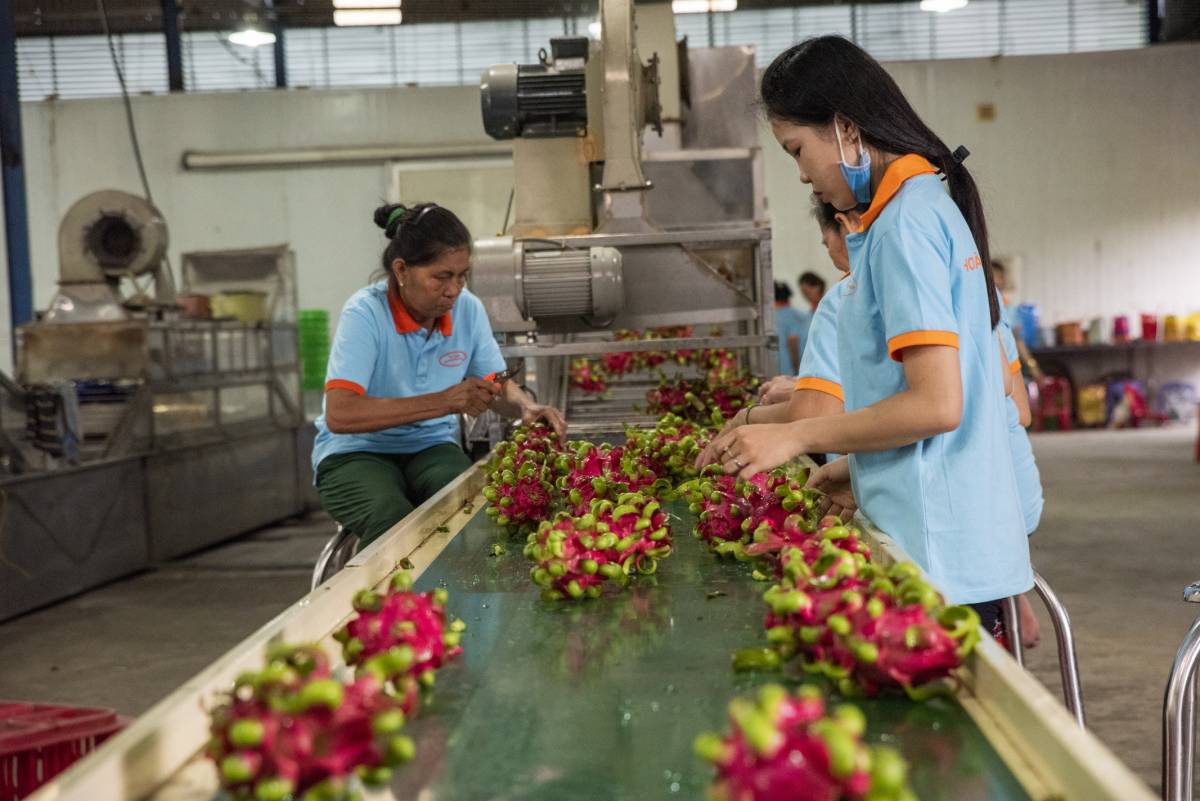On this page

Viet Nam graduated from Least Developed Country status to Lower Middle Income Country status in 2010. Economic development and investment is strong, with GDP growth of 6.8% in 2017 (World Bank). Viet Nam currently ranks 115 out of 188 countries in the United Nations' Human Development Index (2016).
Remaining challenges for Viet Nam include low development status of rural and ethnic minority peoples, vulnerability to natural disasters including floods and droughts, and relatively low per capita income for its development level. Building a better quality education system that boosts productivity and innovation is also a priority.
New Zealand’s assistance is in line with Viet Nam’s own Sustainable Economic Development Plan 2010–2020.
Total aid to Viet Nam comprises country-specific activities, as well as scholarships, regional initiatives, Partnerships Fund activities, and when requested, humanitarian response.
What we're supporting
We're working closely with the Government of Viet Nam and local partners on several development activities.
| Priority | Activities and outcomes |
|---|---|
|
Agriculture Increase economic and food security benefits from agriculture |
Contributing to sustainable economic growth of the horticulture sector in Viet Nam through the development and commercialisation of high-value dragon fruit that meets market requirements. New Zealand’s Plant and Food Research is leading implementation of this eight-year $7.8 million activity, in partnership with Vietnamese agricultural institutes. |
| Improving farmer income and health status in Binh Dinh province through improved agrichemical safety and access to higher value domestic markets. New Zealand’s Plant and Food Research is leading implementation of this five-year $5.7 million activity, in partnership with the provincial government. | |
| Strengthening horticulture and livestock income opportunities for 1,700 rural households in Cao Bang province through ChildFund New Zealand’s five-year $2.3 million activity to improve post-harvest infrastructure, technical advice, resilience to climate change, and access to micro-finance. | |
| Improving the economic well-being of 1,200 ethnic minority households in Quang Tri province, using market facilitation, savings schemes, sustainable farming techniques, business development and public/private partnerships. World Vision NZ is leading implementation of this five-year $2.8 million initiative. | |
|
Resilience Strengthen resilience |
Reducing the risk and impact (economic and human losses) of dam failures and flooding in the Ca River basin in central Viet Nam, through building the capability of operators in dam-safety risk management techniques and assessment tools. This five–year $5.4 million initiative is implemented by Viet Nam’s Thuy Loi University, New Zealand’s Damwatch Engineering and GNS Science. |
|
Education Improve workforce skills and capabilities |
Improving child development outcomes for children 0 – 8 years old in the central highlands province of Gia Lai, with a specific focus on the most disadvantaged ethnic minority children. This five-year $7.5 million project is being implemented by Plan International in partnership with the Gia Lai provincial government. |
Find out more about New Zealand Aid Programme activities in other ASEAN countries.
Recent achievements
| Priority | Activities and outcomes |
|---|---|
|
Agriculture Increase economic and food security benefits from agriculture |
Improved livelihoods of farmers in Binh Dinh province with use of safe vegetable practices seeing their income increase by up to 30%, while the use of pesticides reduced by an estimated 70%. Poverty rate of the livestock farming households dropped from 9.2% to 1.4%. |
| Over the past six years, 476 people from Viet Nam participated in small business enterprise training, food safety, trade and agriculture training and capacity building activities through our support to the Mekong Institute. | |
|
Resilience Strengthen resilience |
6500 households have benefited from new rainwater storage tanks in Ben Tre province, making families more resilient to droughts and salt water intrusion. 500 households lifted out of poverty, helped by development of goat farming. 33 communes integrated disaster prepardness into local planning and the Province plans to roll out the approach across 164 communes. The Dam Rapid Assessment and Prioritisation Tool (DRAPT) developed and launched in August 2017 in MARD is considered to be an effective and efficient tool for provinces with hundreds of small and medium dams like Nghe An and Ha Tinh to master the dam conditions and prevent against disasters and losses. The project’s priority list of dams for renovation and repair for Ca river basin completed in March 2018, shared with the provinces to consider prompt actions to ensure dam safety. |
|
Education Improve workforce skills and capabilities |
By 2018, 489 government officials have received English trainings in New Zealand and 300 Vietnamese scholars have received the New Zealand Scholarship to study Post-graduate in 8 universities in New Zealand. Improved quality of early childhood education in Gia Lai province with 99% of three to five year old children now having access to formal preschool education. 100% of 5 year olds reach at least 80% of the ‘ready for school’ milestones. 98% of Grade 1 and 2 pupils reach standards in Maths and Vietnamese in the target schools. |
| Improved quality of early childhood education in Gia Lai province with 100% of five year old children and 96% of children aged 3-4 now having access to formal preschool education. The number of children in Grade 1 meeting minimum curriculum requirements in Math has increased from 28% to 92%. |

